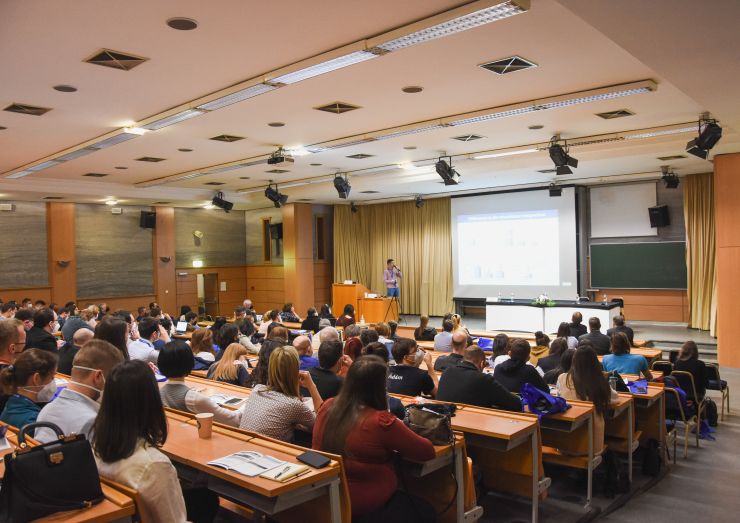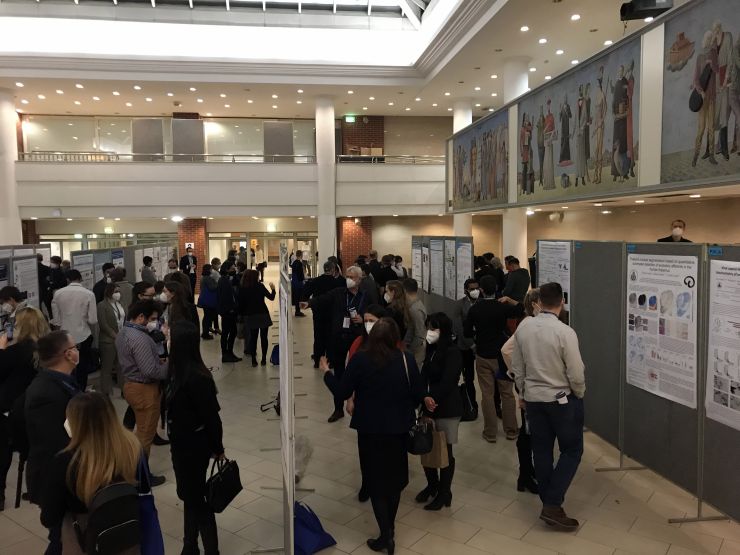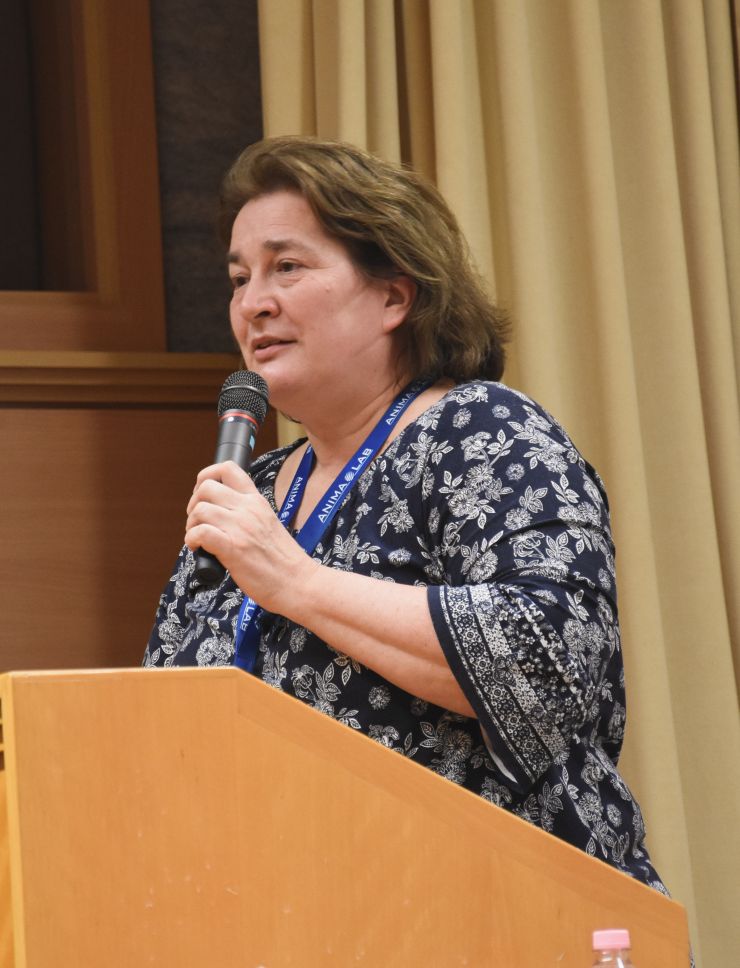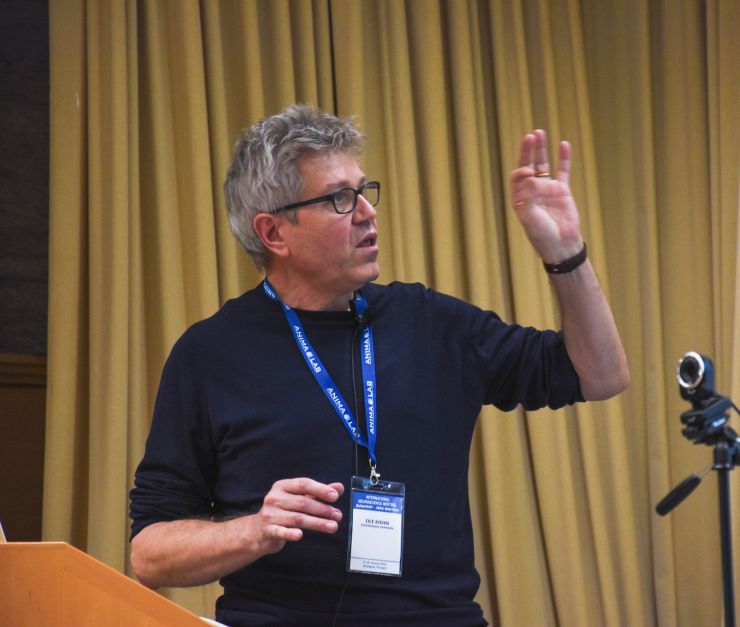Summary of Professional Content of the Conference
The Hungarian Society of Neuroscience believes it is of utmost importance that its members and colleagues working in the research field can meet once a year to learn about each other's achievements, about the work of invited foreign lecturers, and to exchange ideas. Unfortunately, for the first time since the Society was founded, the planned conference in 2021 was cancelled. For this reason, it was particularly important for Hungarian neuroscience to be able to meet in 2022 in person. For the purpose of holding a face-to-face conference, there were significant precautions in place. It was mandatory for all participants to possess 3 vaccinations, which were checked individually by means of the "COVID-19 Certificate" valid at the time of registration. In addition, the wearing of the FFP2 face mask was also mandatory at the conference venue.
The international reputation of Hungarian neuroscience is high, our conference is a European event with guests coming from abroad, even overseas. In recognition of this, in 2022, we received the licence from the International Brain Research Organization (IBRO) that the conference could also be an IBRO Workshop. This, together with the fact that our plenary speakers were all able to come to present in person lectures, further enhanced the international importance of the conference. Prof. Ole Kiehn (Karolinska Institute, Sweden) gave a presentation on brainstem neuron networks that regulate movement in the healthy and diseased brain as the opening plenary speaker. Prof. Valery Grinevich (Heidelberg University, Germany) presented on the role of peptidergic signalling, in particular the neuropeptide oxytocin, and Prof. Olivier Manzoni (Inmed Inserm, Marseille, France) presented on the neurobehavioural effects of endocannabioids. They were complemented by Prof. Gábor Nyíri (Institute of Experimental Medicine, Eötvös Loránd Research Network) as the fourth plenary speaker, who presented two Science articles his research group published in 2020-21. The 4 symposia covered topics currently under research priority in neuroscience, such as gut-brain communication, transcriptomic mechanisms underlying schizophrenia and autism spectrum disorder, cortical level functioning of the visual system, and inhibition of neuroinflammation. The symposia were organised by the University of Pécs and the University of Szeged, Semmelweis University and the Natural Sciences Research Centres of the Eötvös Loránd Research Network. Each symposium featured at least one foreign researcher, as well as representatives of the most outstanding achievements of the Hungarian neuroscience. In addition, the poster session was also a great success.
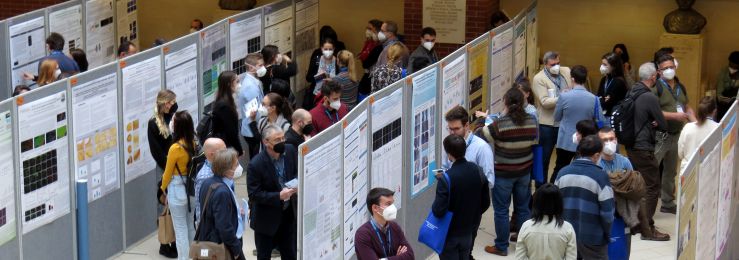
A szakmai tartalom összefoglalója
A Magyar Idegtudományi Társaság kiemelt fontossággal kezeli, hogy tagjai, valamint a területen dolgozó érdeklődő kollégák évente egyszer össze tudjanak jönni, és egymás eredményeivel, valamint meghívott külföldi előadók munkáival megismerkedjenek, és ezekről eszmét tudjanak cserélni. Sajnos a Társaság megalakulása óta első ízben 2021-ben elmaradt a tervezett konferencia. Emiatt különösen fontos volt a magyar idegtudomány szempontjából, hogy 2022-ben össze tudjunk jönni. A jelenléti konferencia megtartásának céljából jelentős óvintézkedések voltak érvényben, 3 oltás volt kötelező, melyet egyénenként ellenőriztünk, a regisztrációkor érvényes „COVID-19 Tanúsítvány” segítségével. Emellett a konferencia helyszínén az FFP2 arcmaszk viselése volt kötelező.
A magyar idegtudomány nemzetközi hírneve magas, konferenciánk Európai esemény, melyre a tengeren túlról is érkeznek vendégek. Ezt elismerve 2022-ben megkaptuk azt az elismerést az International Brain Research Organization (IBRO)-tól, hogy a konferencia egyben egy IBRO Workshop is lehetett. Ez, valamint hogy a plenáris előadóink mind el tudtak jönni jelenléti előadást tartani, tovább növelte a konferencia nemzetközi jelentőségét. Prof. Ole Kiehn (Karolinska Institute, Sweden) olyan agytörzsi neuronhálózatokról tartott előadást, amelyek szabályozzák a mozgást az egészséges és beteg agyban. Prof. Valery Grinevich (Heidelberg University, Németország) a peptiderg jelátvitel, azon belül elsősorban az oxytocin neuropeptid szerepéről tartott előadást, míg Prof. Olivier Manzoni (Inmed Inserm, Marseille, Franciaország) az endocannabioidok idegrendszeri hatásairól tartott előadást. Őket egészített ki Prof. Nyíri Gábor (ELKH KOKI), aki 2020-21-ben levelező szerzőként publikált két Science cikkének anyagát mutatta be. A megrendezésre került 4 szimpózium témája szintén az idegtudomány jelenleg kiemelten kutatott témáit ölelte fel, úgy, mint a Bél-agy kommunikáció, a schizophrenia és autizmus spektrumzavar transzkriptomikai háttérmechanizmusai, a vizuális rendszer kortikális szintű működése, és a neuroinflammáció gátlása. A szimpóziumok szervezői a Pécsi ill. Szegedi Tudományegyetemről, valamint a Semmelweis Egyetemről, és az ELKH Természettudományi Kutatóközpontjából kerültek ki. Minden szimpóziumban előadott legalább egy külföldi kutató, valamint a hazai szakmai legkiválóbb eredményeket elért képviselői. Emellett a poszterszekció is kiemelkedően sikeres volt.
